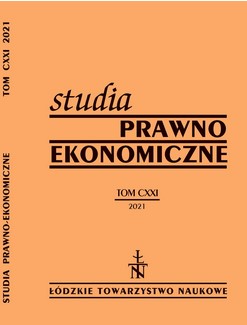WPŁYW BEZPOŚREDNICH INWESTYCJI ZAGRANICZNYCH, WZROSTU GOSPODARCZEGO I ZUŻYCIA ENERGII NA EMISJĘ DWUTLENKU WĘGLA – PRZYKŁAD WYBRANYCH KRAJÓW GRUPY WYSZEHRADZKIEJ
THE IMPACT OF FOREIGN DIRECT INVESTMENTS, ECONOMIC GROWTH, AND ENERGY CONSUMPTION ON CARBON DIOXIDE EMISSION – AN EXAMPLE OF SELECTED COUNTRIES OF THE VISEGRAD GROUP
Author(s): Robert Matusiak, Marta PaduszyńskaSubject(s): Energy and Environmental Studies, Environmental and Energy policy, Comparative politics, Human Ecology, Economic development, Environmental interactions
Published by: Łódzkie Towarzystwo Naukowe
Keywords: FDI; economic growth; environmental protection; Visegrad Group; quantile regression model;
Summary/Abstract: Background: The article is part of a larger research into the impact of macroeconomic variables on the environment. It is a topic often discussed in the literature, but there are no clear conclusions about the impact of foreign direct investment (FDI), economic growth, or energy consumption on carbon dioxide (CO2) emissions and thus on environmental pollution. The results of the study provide new arguments in relation to the countries of the Visegrad group. Research purpose: The authors aimed to examine the impact of FDI, economic growth, and energy consumption on carbon dioxide emissions in three selected Visegrad Group (i.e., Poland, the Czech Republic, and Hungary). Methods: The article uses a panel quantile regression model that takes into account unobserved individual heterogeneity. Based on different quantile points, it takes full advantage of the sample data for regression analysis. This approach captures unobservable fixed effects as parameters to be estimated together with covariate effects for different quantiles. Conclusions: The empirical results did not confirm the applicability of the “pollution paradise” or “pollution halo” hypotheses in relation to the studied countries. Therefore, it is not possible to conclude that developed countries transferring capital (i.e., FDI) to the countries analyzed in this analysis significantly contribute to high pollution in these countries, making them “pollution havens” (considering the period under consideration research). Nor was it confirmed that foreign companies apply better management practices and advanced technologies that favour a clean environment in the host country. In addition, the study found that energy consumption increases carbon dioxide emissions, with the strongest effects occurring at higher quantiles. Hence the conclusion that high carbon dioxide emissions in these countries are the result of the existing structure of energy production and consumption according to the criterion of energy carriers or production methods. This may indicate that policymakers in these countries should strengthen the relevant environmental legislation in this regard.
Journal: Studia Prawno-Ekonomiczne
- Issue Year: 2021
- Issue No: 121
- Page Range: 227-243
- Page Count: 17
- Language: Polish

